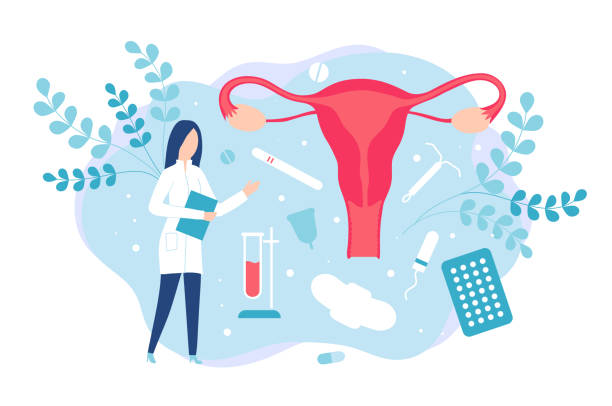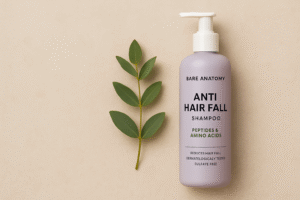This blog offers practical tips for managing menstrual cycles with ease, including tracking your period, staying hydrated, eating a balanced diet, using heat for cramps, practicing light exercise, managing stress, and getting enough sleep. These strategies help alleviate discomfort and promote overall well-being during menstruation.
Introduction
Hello everyone ! Welcome to SasVibe. Menstrual cycles are a natural part of life for many women, but they can often come with discomfort, mood swings, and even pain. However, with the right tips and techniques, you can manage your period more comfortably and confidently. Whether you’re dealing with cramps, bloating, or irregular cycles, there are ways to support your body and make your period a little more bearable.
In this blog, we’ll dive into some helpful menstrual tips to take care of your body, ease discomfort, and maintain balance during your cycle.
1. Track Your Cycle
Knowing your menstrual cycle is key to managing it well. By tracking your period, you can anticipate when it’s coming, monitor symptoms, and better understand your body. You can use a period-tracking app or a calendar to note the start and end of your period, as well as any symptoms like cramping, mood changes, or headaches. This not only helps you prepare but can also give you valuable insight into your reproductive health.
2. Stay Hydrated
One of the simplest yet most effective ways to ease menstrual discomfort is by staying hydrated. Drinking enough water can help reduce bloating and keep your energy levels steady. Dehydration can make cramps worse and contribute to fatigue, so aim to drink at least 8 glasses of water a day, especially during your period.
3. Maintain a Balanced Diet
Eating a balanced, nutrient-rich diet can make a significant difference in how you feel during your period. Foods rich in vitamins and minerals, such as leafy greens, whole grains, nuts, and fruits, provide the nutrients your body needs to regulate hormones and reduce discomfort.
Consider incorporating these into your diet:
- Magnesium-rich foods like spinach and almonds can help with muscle relaxation and reduce cramping.
- Iron-rich foods like lentils and leafy greens to replenish iron lost during menstruation.
- Complex carbohydrates like oats and whole grains can balance your mood and prevent energy dips.
Try to avoid excessive caffeine, processed foods, and salty snacks, as these can worsen bloating and irritate your digestive system.
4. Use Heat for Cramps
Heat is a tried-and-true remedy for period cramps. Applying heat to your lower abdomen can relax the uterine muscles and ease cramping. You can use a heating pad, hot water bottle, or even take a warm bath to soothe the pain. For those on the go, heat patches can provide portable relief throughout the day.
5. Stay Active with Light Exercise
While it might be tempting to stay curled up on the couch during your period, light exercise can actually help alleviate cramps and improve your mood. Gentle activities like walking, yoga, and stretching can increase blood flow and release endorphins, which act as natural pain relievers. You don’t have to go all out—just a 20-minute walk or a short yoga session can make a noticeable difference.
6. Manage Stress
Stress can have a significant impact on your menstrual cycle, making cramps worse or even causing irregular periods. Practicing stress-management techniques like deep breathing, meditation, or journaling can help you stay calm and centered. Taking time to relax and recharge is especially important during your period, as your body is already under physical stress.
7. Get Enough Sleep
Sleep is essential for overall well-being, but during your period, it becomes even more important. Hormonal changes can make you feel more fatigued, and getting enough rest can help your body recover and reduce irritability. Aim for at least 7-8 hours of sleep each night, and try to maintain a consistent sleep schedule.
If cramps or discomfort are keeping you up at night, using a heating pad or taking a warm bath before bed can help you relax and drift off more easily.
8. Consider Supplements
For some, certain supplements can help alleviate menstrual symptoms. Speak with a healthcare provider before starting any new supplements, but here are a few that may help:
- Magnesium: Can help reduce cramping and muscle tension.
- Vitamin B6: May support mood regulation and reduce PMS symptoms.
- Omega-3 fatty acids: Have anti-inflammatory properties that can lessen cramping.
9. Wear Comfortable Clothing
During your period, bloating and cramps can make tight clothing uncomfortable. Opt for loose, breathable clothing, especially around the abdomen, to reduce any pressure or discomfort. Soft fabrics and comfortable underwear can also help you feel more at ease during this time.
10. Try Relaxation Techniques
Incorporating relaxation techniques like deep breathing, mindfulness, or aromatherapy can help soothe both body and mind during your period. Practicing mindfulness or meditation can reduce stress and focus your attention away from discomfort. Aromatherapy, with calming essential oils like lavender or chamomile, can further enhance relaxation.
11. Stay Prepared
One of the best ways to manage your period is to always be prepared. Keep menstrual products like pads, tampons, or menstrual cups in your bag or car to avoid unexpected surprises. Having pain relievers on hand for cramps or pre-menstrual headaches can also make a big difference.
12. Consult a Doctor for Irregular Cycles
If you have irregular or particularly painful periods, it’s important to speak to a healthcare professional. Heavy bleeding, severe pain, or erratic cycles can sometimes be a sign of underlying health issues such as hormonal imbalances, endometriosis, or fibroids. A doctor can help diagnose and treat any concerns you may have.
FAQs About Managing Your Menstrual Cycle
1. How can I track my menstrual cycle?
You can track your menstrual cycle by using a period-tracking app or a calendar to log the start and end dates of your period, as well as any symptoms like cramps, headaches, or mood changes. This helps you better anticipate your period and monitor your reproductive health.
2. Why is staying hydrated important during my period?
Staying hydrated helps reduce bloating and cramps during your period. Dehydration can intensify discomfort and lead to fatigue, so it’s essential to drink at least 8 glasses of water a day to ease menstrual symptoms.
3. What foods should I eat during my period?
Focus on nutrient-rich foods like leafy greens, whole grains, nuts, and fruits. Magnesium-rich foods help with cramping, while iron-rich foods can replenish iron levels lost during menstruation. Avoid processed foods and excessive caffeine to prevent bloating and digestive issues.
4. How does heat help with menstrual cramps?
Applying heat to your lower abdomen relaxes the uterine muscles, reducing cramps. You can use a heating pad, hot water bottle, or heat patches to ease the pain. Taking a warm bath can also help soothe menstrual discomfort.
5. Can exercise relieve menstrual cramps?
Yes, light exercise like walking, yoga, or stretching can improve blood flow and release endorphins, which act as natural pain relievers. Gentle physical activity can reduce cramps and boost your mood during your period.
6. How can stress affect my menstrual cycle?
Stress can worsen menstrual cramps, cause irregular periods, and lead to heightened PMS symptoms. Incorporating stress-management techniques like meditation, deep breathing, or journaling can help regulate your cycle and reduce discomfort.
7. What supplements help with menstrual symptoms?
Some supplements, such as magnesium (for muscle relaxation), vitamin B6 (for mood regulation), and omega-3 fatty acids (for anti-inflammatory benefits), may help alleviate menstrual symptoms. Always consult a doctor before taking any new supplements.
8. What should I do if my periods are irregular or very painful?
If you experience irregular or unusually painful periods, it’s important to consult a healthcare professional. These symptoms may be signs of underlying health conditions like endometriosis, fibroids, or hormonal imbalances, which require medical attention.
9. How can I stay comfortable during my period?
Wear loose, breathable clothing to avoid putting pressure on your abdomen, and use soft fabrics and comfortable underwear. Incorporating relaxation techniques, such as deep breathing or aromatherapy, can also help you feel more at ease.
10. What are some ways to reduce bloating during my period?
Staying hydrated, reducing salt intake, and eating whole, unprocessed foods can help reduce bloating during your period. Drinking herbal teas like peppermint or ginger tea may also aid digestion and alleviate bloating.
Conclusion
Managing your menstrual cycle doesn’t have to be a challenge. With a few simple adjustments to your routine, like staying hydrated, eating a nutrient-rich diet, and incorporating light exercise, you can significantly improve how you feel during your period. Whether it’s using heat to soothe cramps or practicing mindfulness to reduce stress, these menstrual tips can help you feel more in control and comfortable throughout your cycle. Remember, every body is different, so listen to your body and find what works best for you.



